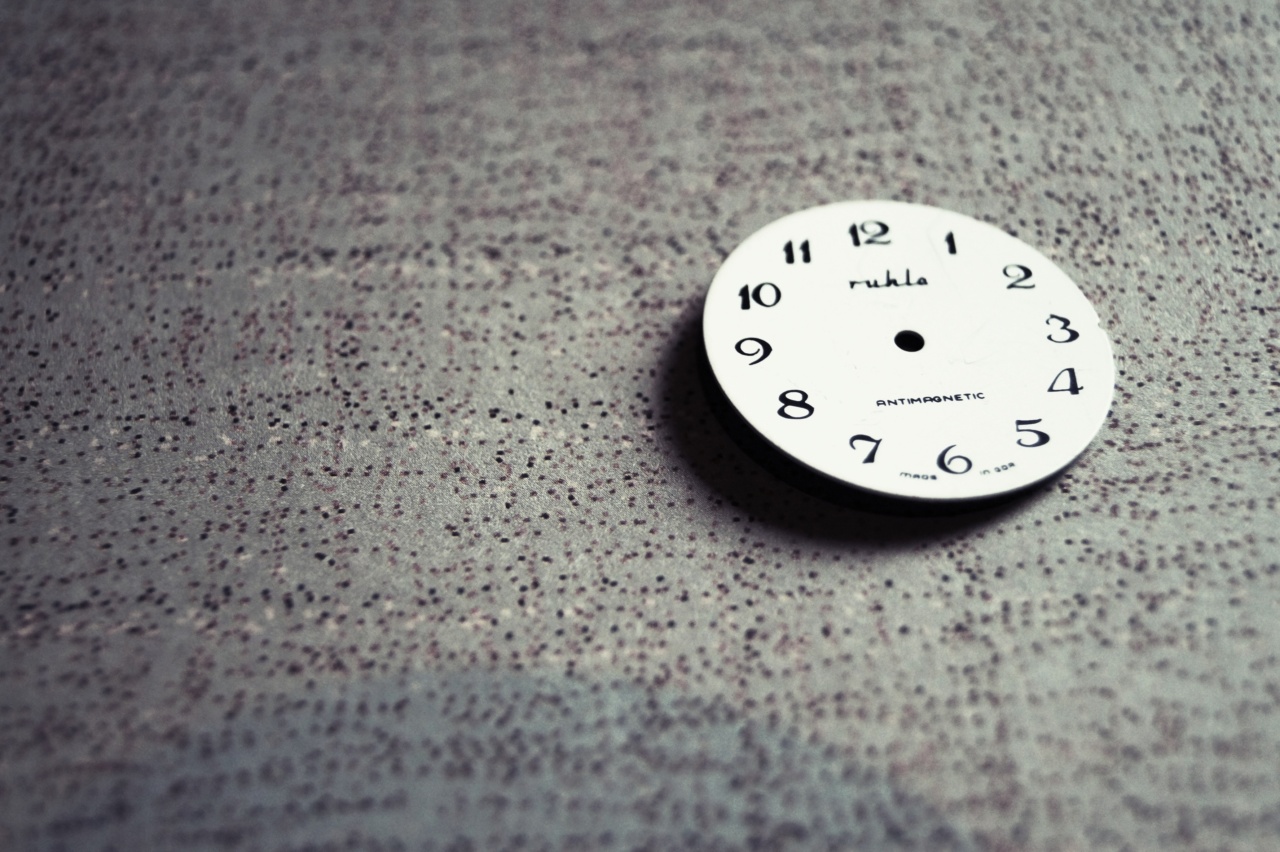Our internal clock, also known as the circadian rhythm, regulates many of our bodily functions. This natural 24-hour cycle determines when we should feel alert and when we should feel sleepy.
However, disruptions to our internal clock can lead to sleep disorders, mood changes, and even health problems.
What is the Circadian Rhythm?
The circadian rhythm is a complex system that helps regulate our sleep-wake cycle. It is controlled by an area of the brain known as the suprachiasmatic nucleus (SCN).
The SCN uses signals from the environment, such as light and darkness, to synchronize the body’s internal clock with the external world.
Our internal clock regulates many bodily functions, including:.
- Sleep-wake cycle
- Hormone production
- Body temperature
- Metabolism
- Heart rate
- Blood pressure
What Happens When the Internal Clock is Broken?
Disruptions to our circadian rhythm can lead to a number of health problems. Some common issues include:.
- Insomnia
- Excessive daytime sleepiness
- Depression and mood changes
- Digestive problems
- Metabolic disorders like diabetes
- Increased risk of cancer and cardiovascular disease
One of the most common causes of a disrupted internal clock is shift work. People who work night shifts or rotating shifts often struggle with sleep problems and other health issues.
Other causes of a broken internal clock include jetlag, irregular sleep schedules, and certain medications.
How to Reset Your Internal Clock
If you are experiencing disruptions to your internal clock, there are several things you can do to help reset it:.
- Stick to a regular sleep schedule
- Avoid exposure to bright lights close to bedtime
- Avoid electronic devices before bed
- Get plenty of natural light during the day
- Avoid caffeine, alcohol, and nicotine before bedtime
- Exercise regularly
If you are experiencing severe sleep problems, you may need to see a doctor. They can recommend treatments like cognitive-behavioral therapy or medication to help improve your sleep and reset your internal clock.
The Bottom Line
Our internal clock plays a critical role in regulating many of our bodily functions. Disruptions to this system can lead to sleep problems and other health issues.
It is important to take steps to maintain a regular sleep schedule and avoid disruptions to our circadian rhythm. If you are experiencing severe sleep problems, talk to a healthcare professional for help.































